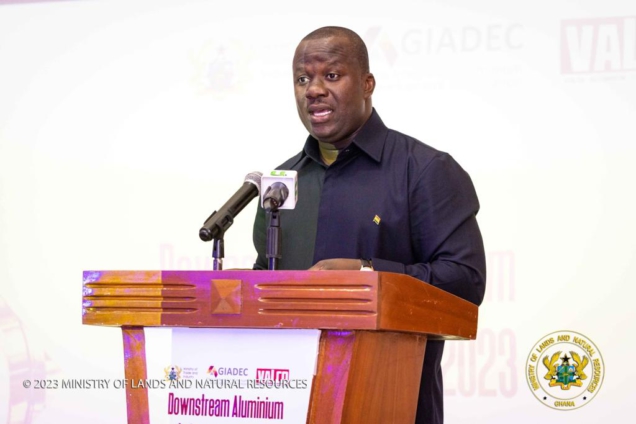The Minister for Lands and Natural Resources, Samuel A. Jinapor, says Government’s quest to build an integrated aluminium industry in the country is on course and progressing steadily.
He said this is in line with the Ghana Integrated Aluminium Development Corporation Act, 2018 (Act 976), which establishes the Ghana Integrated Aluminium Development Corporation (GIADEC) to promote and develop an integrated aluminium industry in the country.
The Minister said this on Wednesday, 29th March, 2023, when he opened a two-day Workshop on the downstream aluminium industry in Akosombo in the Eastern Region.
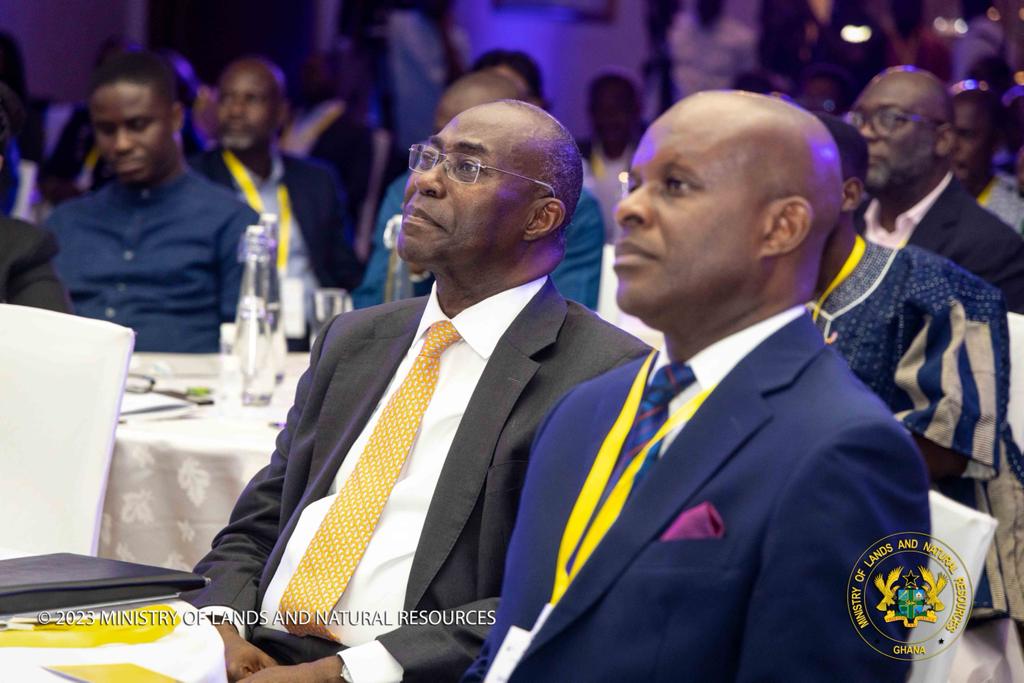
The workshop, which was organised by GIADEC, in partnership with the Strategic Anchor Industries Unit of the Ministry of Trade and Industry and the ODI (formerly Overseas Development Institute, with funding from the United Kingdom Government's Foreign, Commonwealth and Development Office (FCDO), brought together stakeholders in the aluminium industry to deliberate on policy options and implementation plan for the downstream aluminium industry.
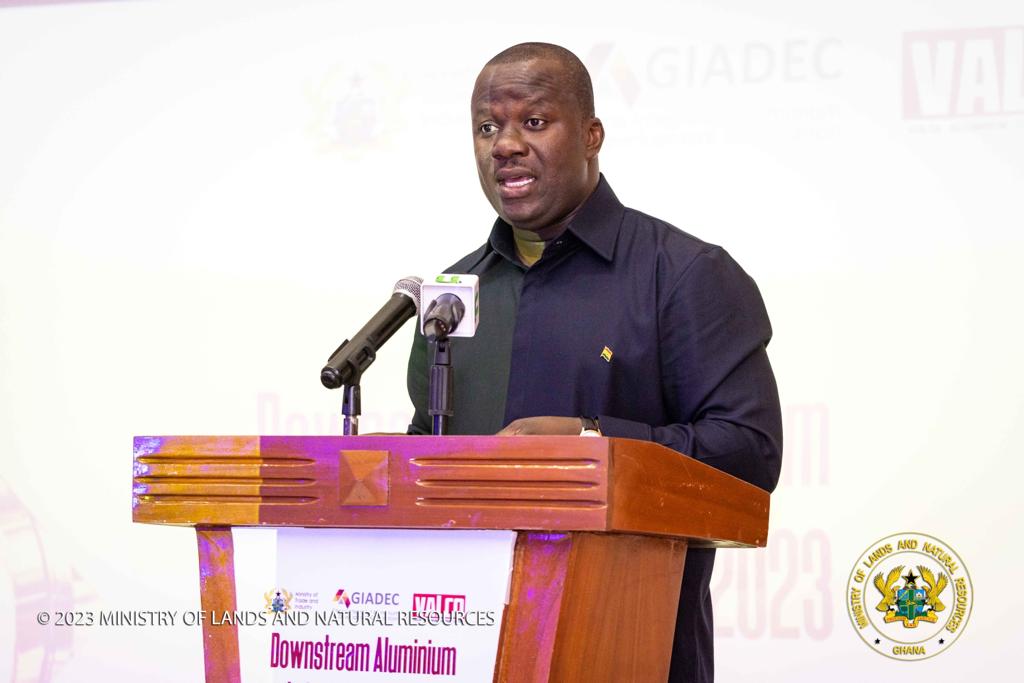
This follows an extensive research, data collection and technical analysis of best practices across the world carried out by GIADEC and ODI.
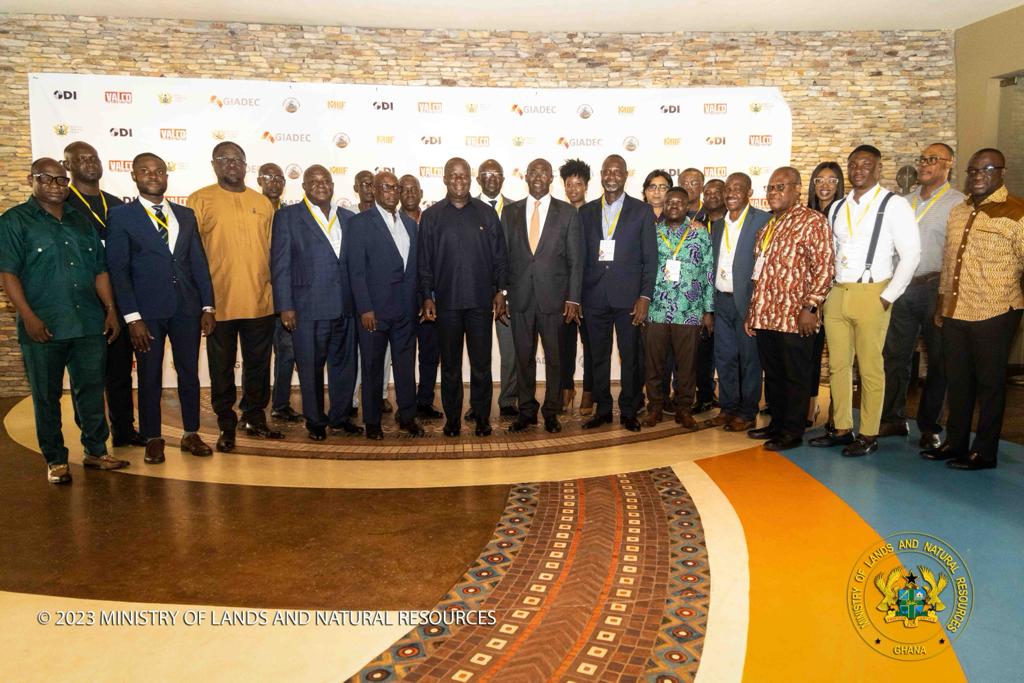
Delivering the keynote address at the workshop, Mr. Jinapor emphasised the need to add value to Ghana's mineral resources to ensure optimal benefit from these resources.
He said Government has since 2017 been pursuing this path for all our mineral resources including gold, bauxite, iron ore, lithium and other green minerals.
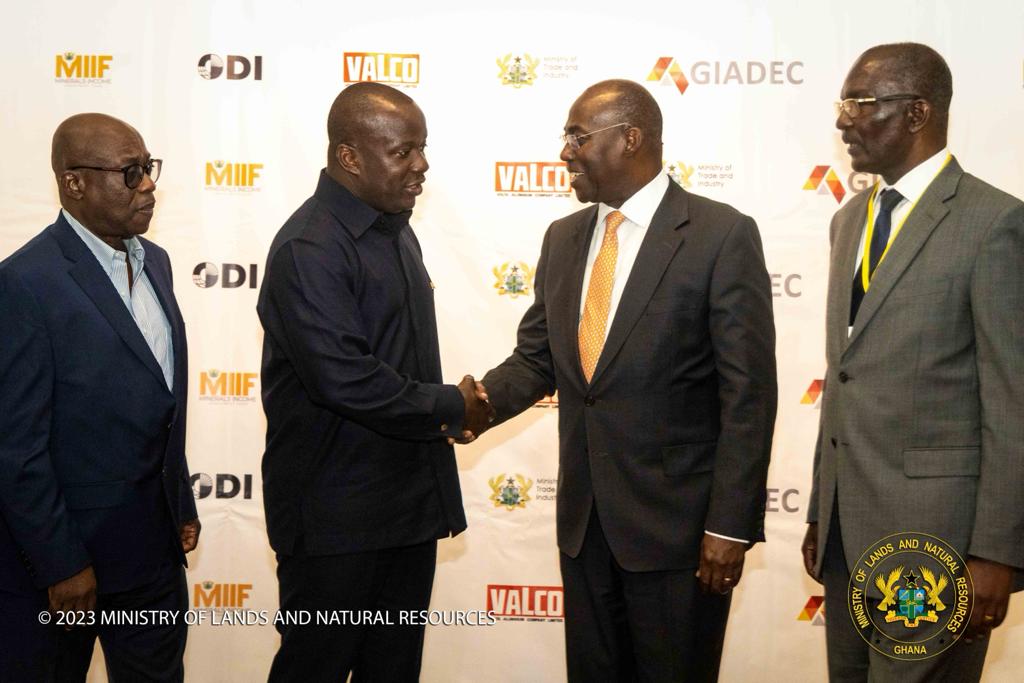
Speaking specifically on bauxite, Mr. Jinapor said while the raw ore sells for around Sixty US Dollars (US$60.00) per metric tonne, primary aluminium, produced from bauxite, sells for over Two Thousand US Dollars (US$2,000.00) per metric tonne.
He said Ghana has an estimated bauxite resource base of over nine hundred million metric tonnes (900,000,000Mt), capable of creating some two million sustainable jobs, and generating over One Trillion US Dollars in revenue if fully integrated. Unfortunately, we have, over the years, failed to make the needed investment in this area.
He expressed Government’s optimism on the contribution of a fully-integrated aluminium industry to socio-economic development.
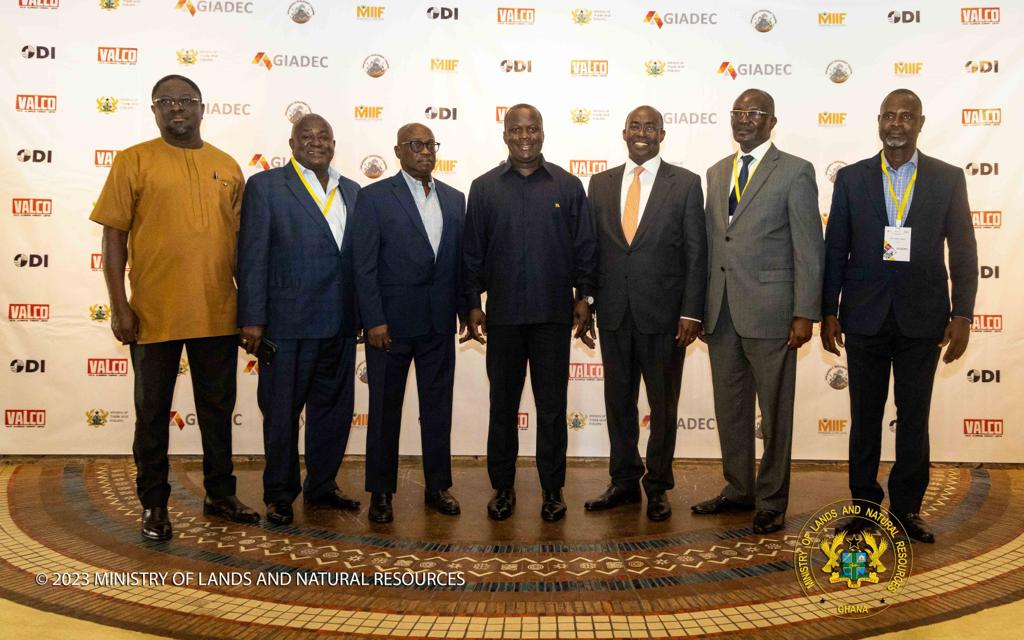
“It is for this reason that in 2018, the President of the Republic, H.E. Nana Addo Dankwa Akufo-Addo, took that bold decision to establish, by an Act of Parliament, the Ghana Integrated Aluminium Development Corporation (GIADEC), to promote and develop an integrated aluminium industry, here in our country,” the Minister said.
According to Mr. Jinapor, GIADEC has, since its establishment, developed a Masterplan for the upstream sector, and is implementing its Four Project Agenda, to expand the existing mine, build three additional mines, build refineries, and modernise the Volta Aluminium Company (VALCO), with all four projects at various stages of implementation.
It is therefore necessary to prepare the downstream industry and make it ready to off-take products from the upstream industry.
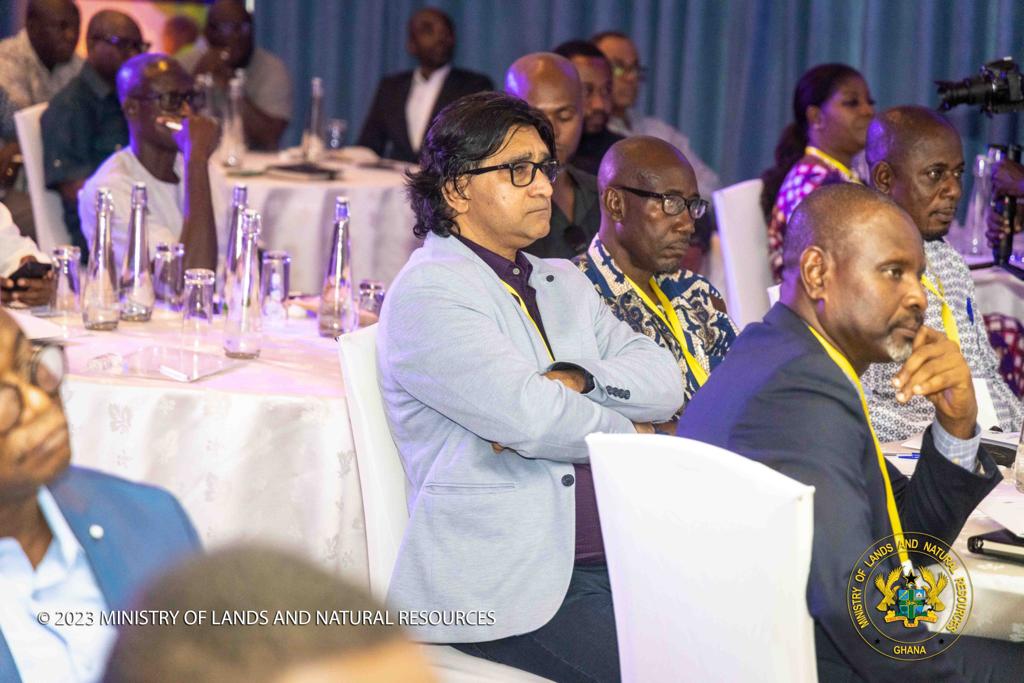
He urged participants at the workshop to bring their expertise to bear, and come out with policy options and plans that will help build a robust, functioning and vibrant downstream aluminium industry that contributes meaningfully to our national economy.
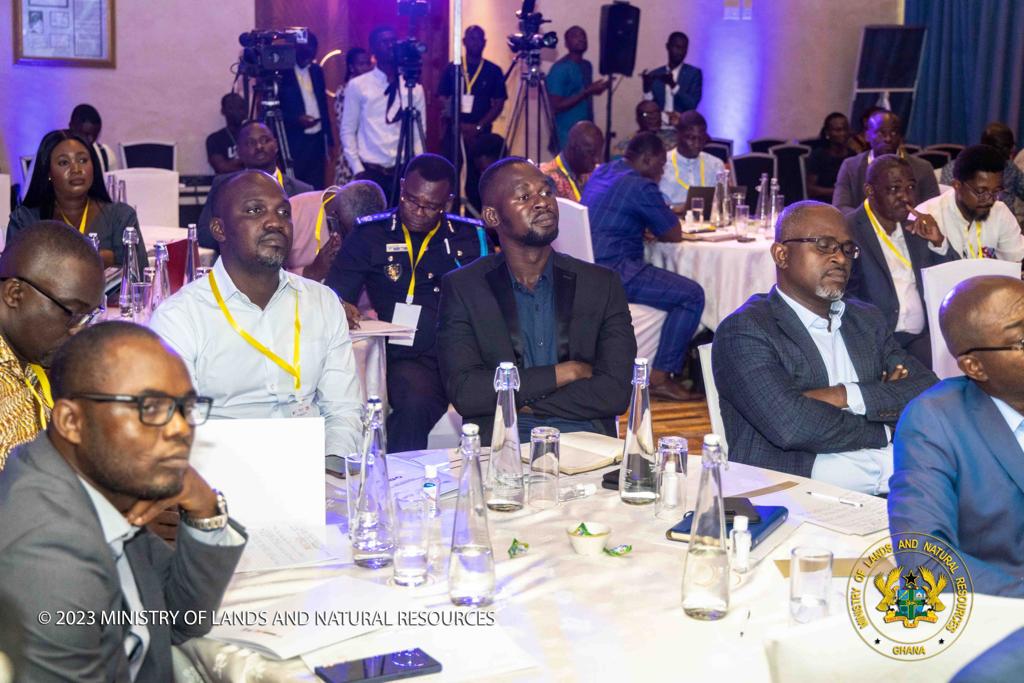
In his welcome address, the Chief Executive Officer of GIADEC, Mr. Michael Ansah explained that the main objective of the workshop is to develop a policy framework for the aluminium integrated industry.
According to him, this has become even more imperative due to the potential 300,000 tonnes of aluminium that will be available annually after the Volta Aluminium Company Limited (VALCO), has been retrofitted.
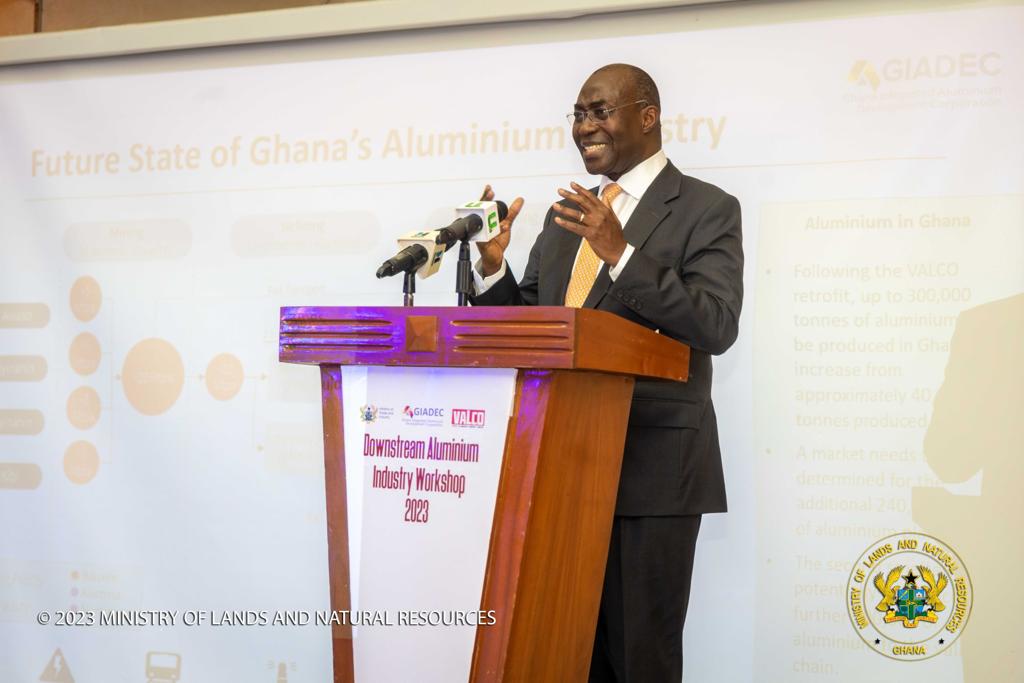
"We want to encourage the consumption of aluminium locally, thereby replacing imports of aluminium products. We want to explore new markets for aluminium export in Africa and beyond, leveraging support of the African Continental Free Trade Area (AfCFTA) and other trade agreements. We also want to encourage production and consumption in specific sectors like transport, construction, packaging and electricals as well as create policy and incentive framework to attract both local and foreign investoers into the down stream industry," Mr. Ansah explained.
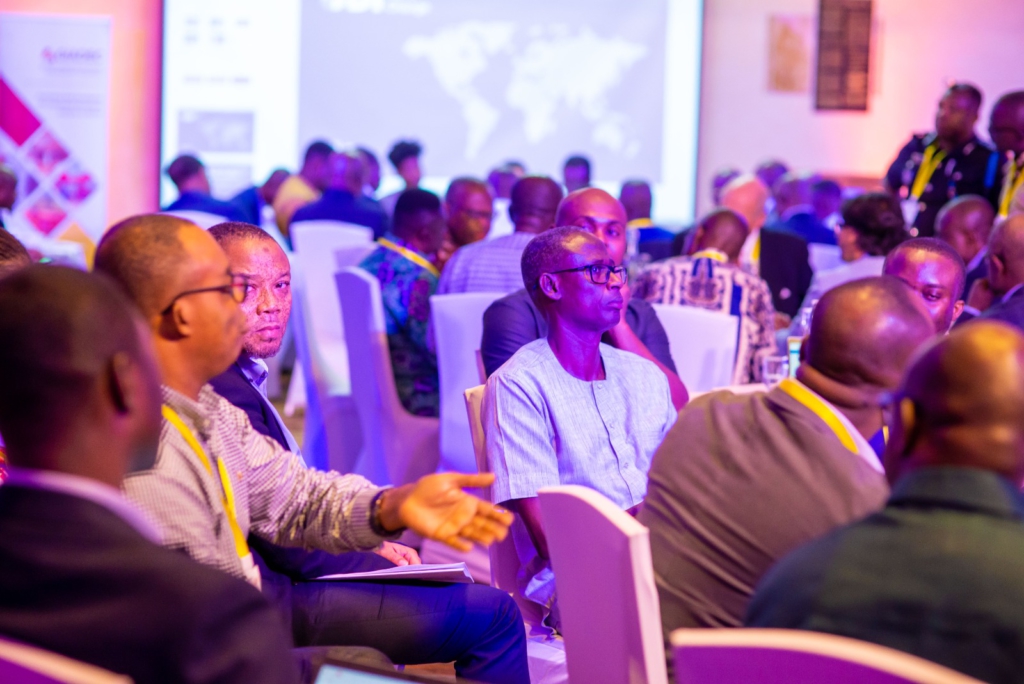
Other participants at the workshop included senior officials of the Ministry of Trade and Industry, Overseas Development Institute, the Africa Continental Free Trade Area Secretariat, and companies in the upstream and downstream aluminium industry.
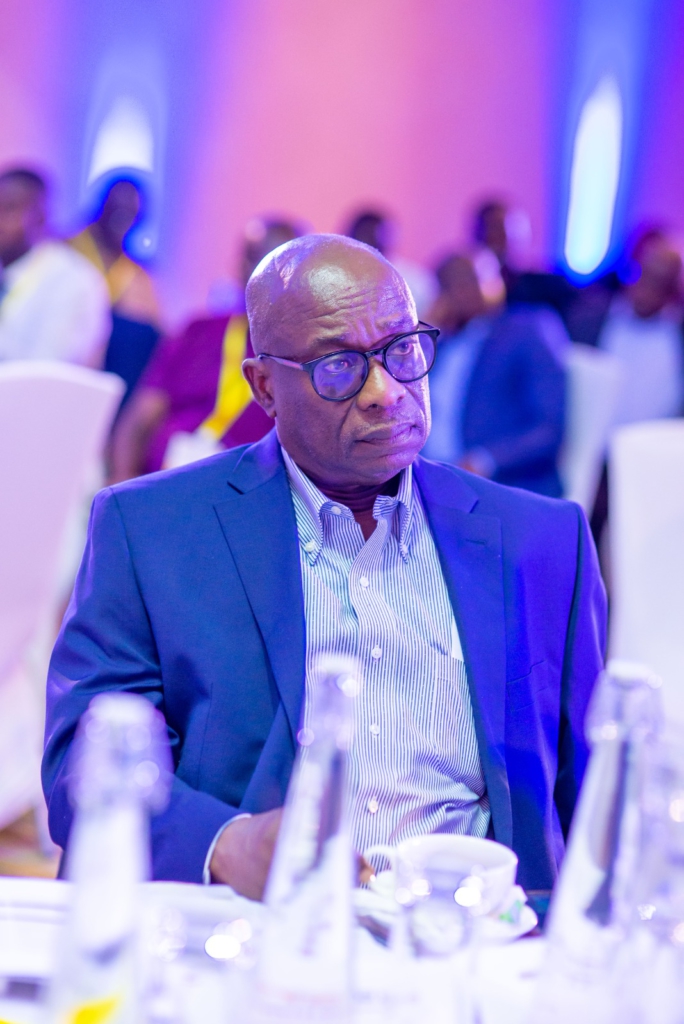
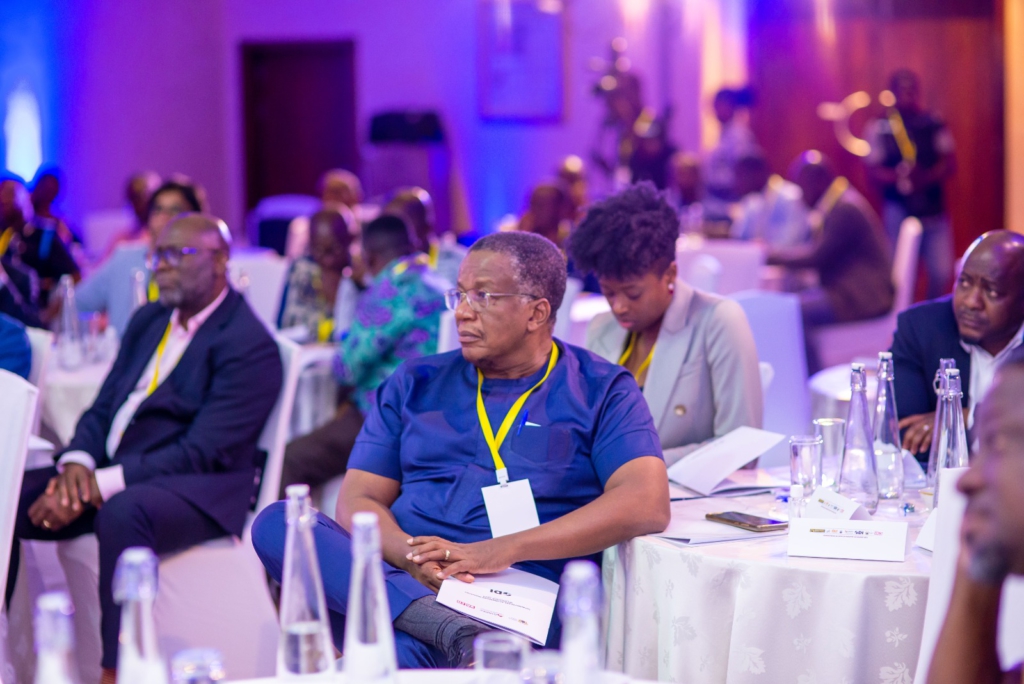
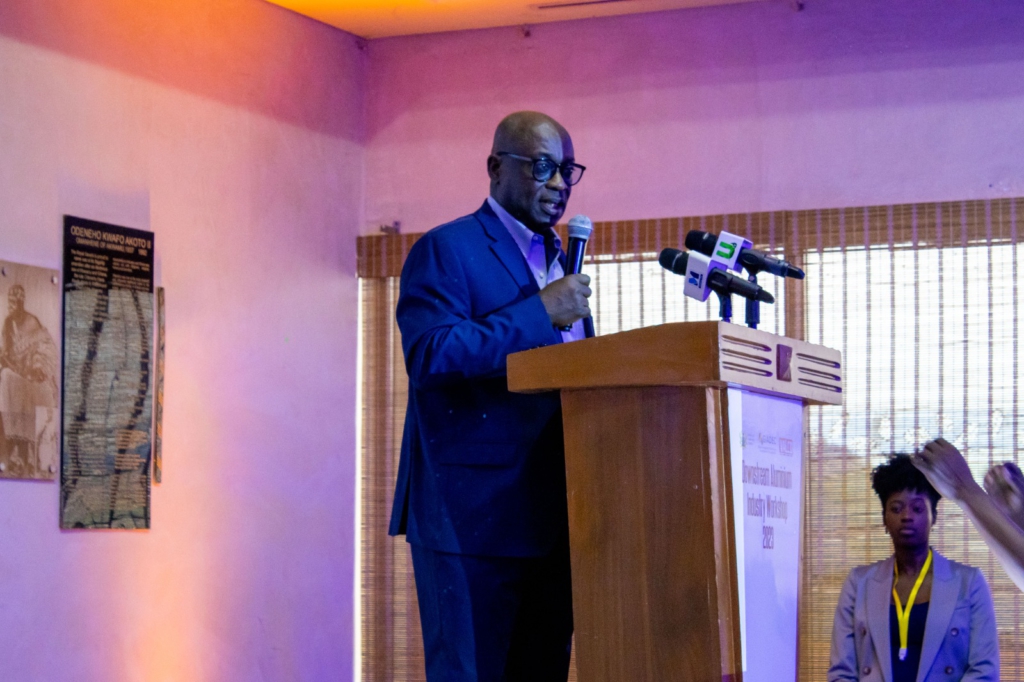
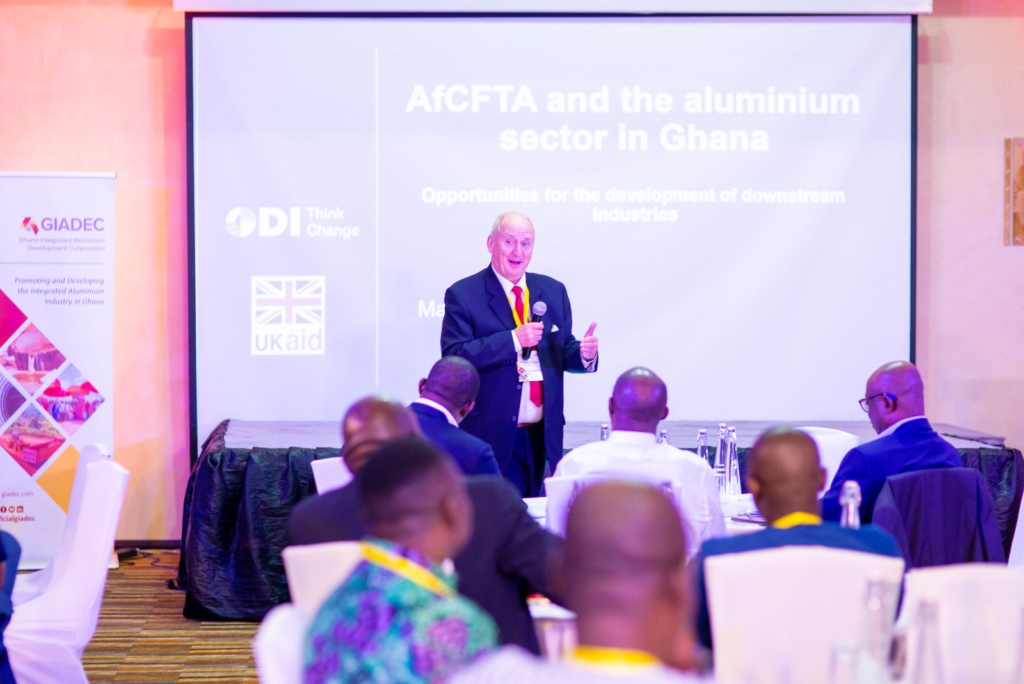
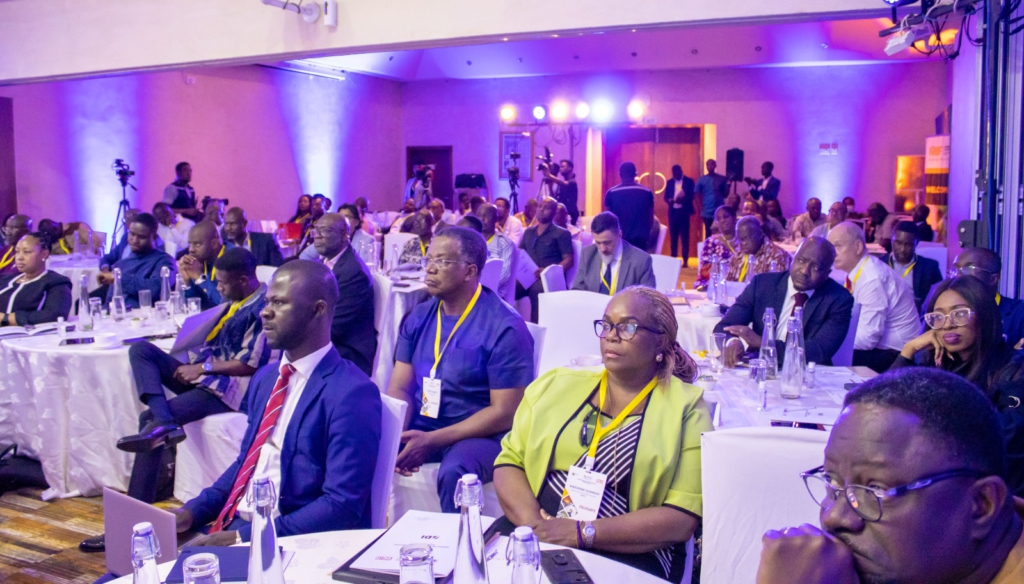
Latest Stories
-
Smallholder farmers to make use of Ghana Commodity Exchange
4 hours -
I want to focus more on my education – Chidimma Adetshina quits pageantry
4 hours -
Priest replaced after Sabrina Carpenter shoots music video in his church
4 hours -
Duct-taped banana artwork sells for $6.2m in NYC
4 hours -
Arrest warrants issued for Netanyahu, Gallant and Hamas commander over alleged war crimes
4 hours -
Actors Jonathan Majors and Meagan Good are engaged
4 hours -
Expired rice saga: A ‘best before date’ can be extended – Food and Agriculture Engineer
5 hours -
Why I rejected Range Rover gift from a man – Tiwa Savage
5 hours -
KNUST Engineering College honours Telecel Ghana CEO at Alumni Excellence Awards
5 hours -
Postecoglou backs Bentancur appeal after ‘mistake’
5 hours -
#Manifesto debate: NDC to enact and pass National Climate Law – Prof Klutse
5 hours -
‘Everything a manager could wish for’ – Guardiola signs new deal
6 hours -
TEWU suspends strike after NLC directive, urges swift resolution of grievances
6 hours -
Netflix debuts Grain Media’s explosive film
6 hours -
‘Expired’ rice scandal: FDA is complicit; top officials must be fired – Ablakwa
7 hours

